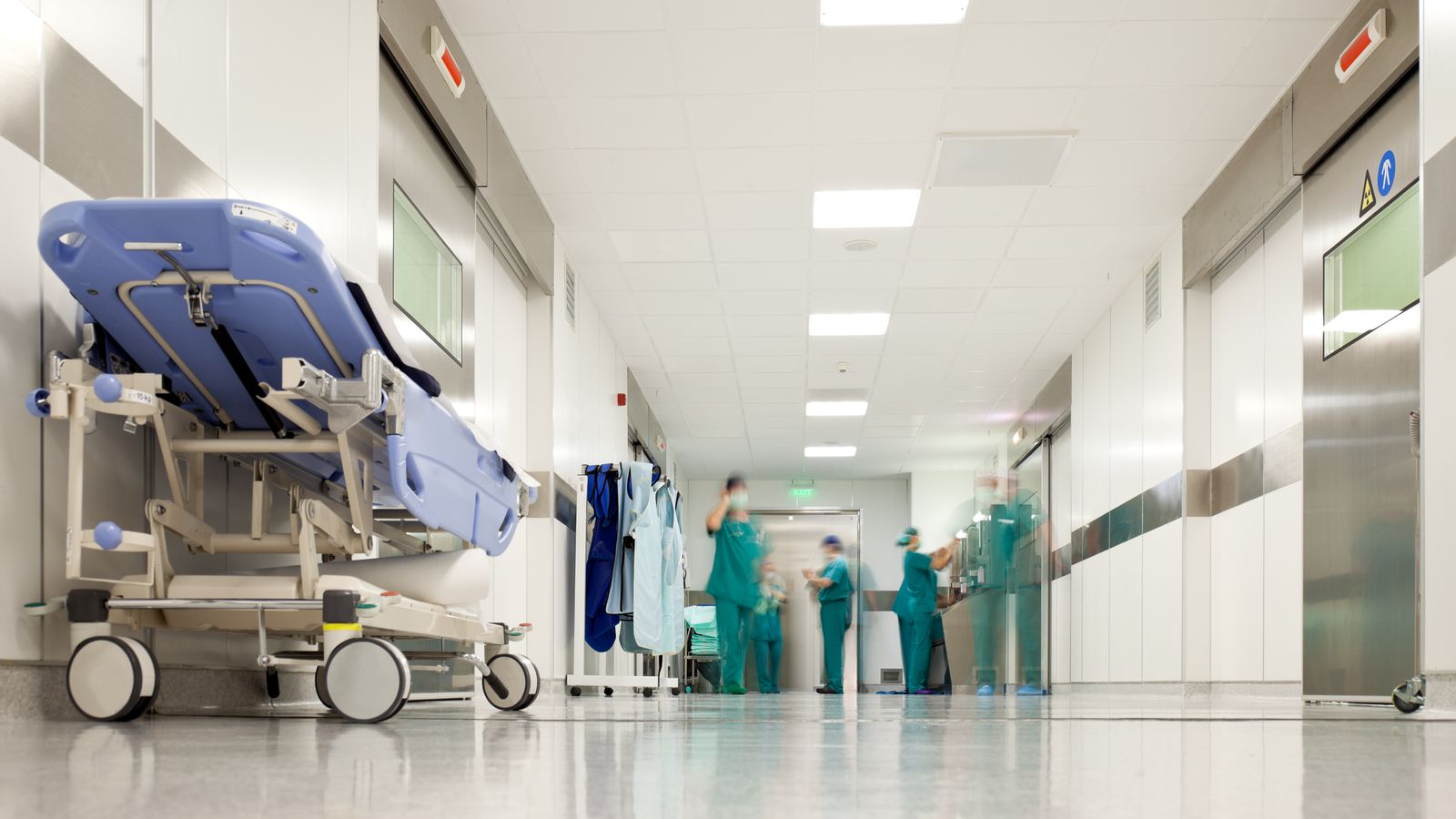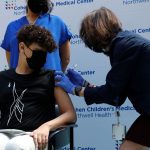The “trade offs” involved in lifting remaining COVID restrictions on 21 June must be subjected to “informed, evidence based” debate, a senior health leader has warned.
While revealing evidence that coronavirus vaccines are proving very effective, Chris Hopson also said some hospitals were “busy and pressured”.
Any significant rise in COVID-19 patients may cause trusts to reduce non-urgent operations, the head of NHS Providers added.
He is calling for a “better quality and richer debate than we have had on these issues in previous phases”.
Please use Chrome browser for a more accessible video player
However, the Indian variant is not yet causing major pressure on hospitals, Mr Hopson said.
Admissions “vary between climbing slowly, plateauing or, interestingly, starting to reduce”, he tweeted.
In one “key hotspot trust” there were 47 COVID inpatients on Saturday – down from 49 on Friday.
That is in “stark contrast” to peaks of 150 in January/February and 170 last November, he added.
Mr Hopson said the “significant majority of hospital cases are unvaccinated”, with patients “significantly younger” than before – which “generally means less need for critical care”.
He said no more than a “handful” of inpatients have had both jabs, and those who are admitted “usually have pronounced co-morbidities”.
Please use Chrome browser for a more accessible video player
Community infection rates are levelling out, Mr Hopson said, with hospital leaders starting to believe they are unlikely to be overwhelmed as in previous peaks.
They are describing this as “clear, on the ground, confirmation of the success of the vaccination campaign”, Mr Hopson added.
But one trust chief executive on the south coast told him that bed occupancy was already running at “96/97%”.
Another trust boss, in a COVID hotspot, said they were trying to keep virus inpatients below 10 – a tiny fraction of the number in January and February.
As soon as the figure goes above that, wards in which patients are recovering from elective procedures will need to be converted to COVID wards, the CEO explained.
Please use Chrome browser for a more accessible video player
Trusts are also reporting “significant increases” in the number of patients with severe mental health needs, “particularly children and younger people needing complex care”, Mr Hopson said.
Sky News recently found almost 40% of children with mental health problems are waiting longer than NHS guidelines allow.
Looking ahead to 21 June, Mr Hopson said hospital chiefs were concerned about the apparent increased transmissibility of the Indian variant.
Many people have still not had both jabs, and it takes three weeks for doses to fully take effect, he added.
He said the long-term impacts of COVID are “still largely unknown” and “trust leaders are clear that we shouldn’t just focus on mortality rates”.
But Mr Hopson said the success of the vaccination campaign meant much lower levels of hospitalisation and serious illness – even with the new variant.
“This means there is a difficult decision to make for 21 June,” he added.






















